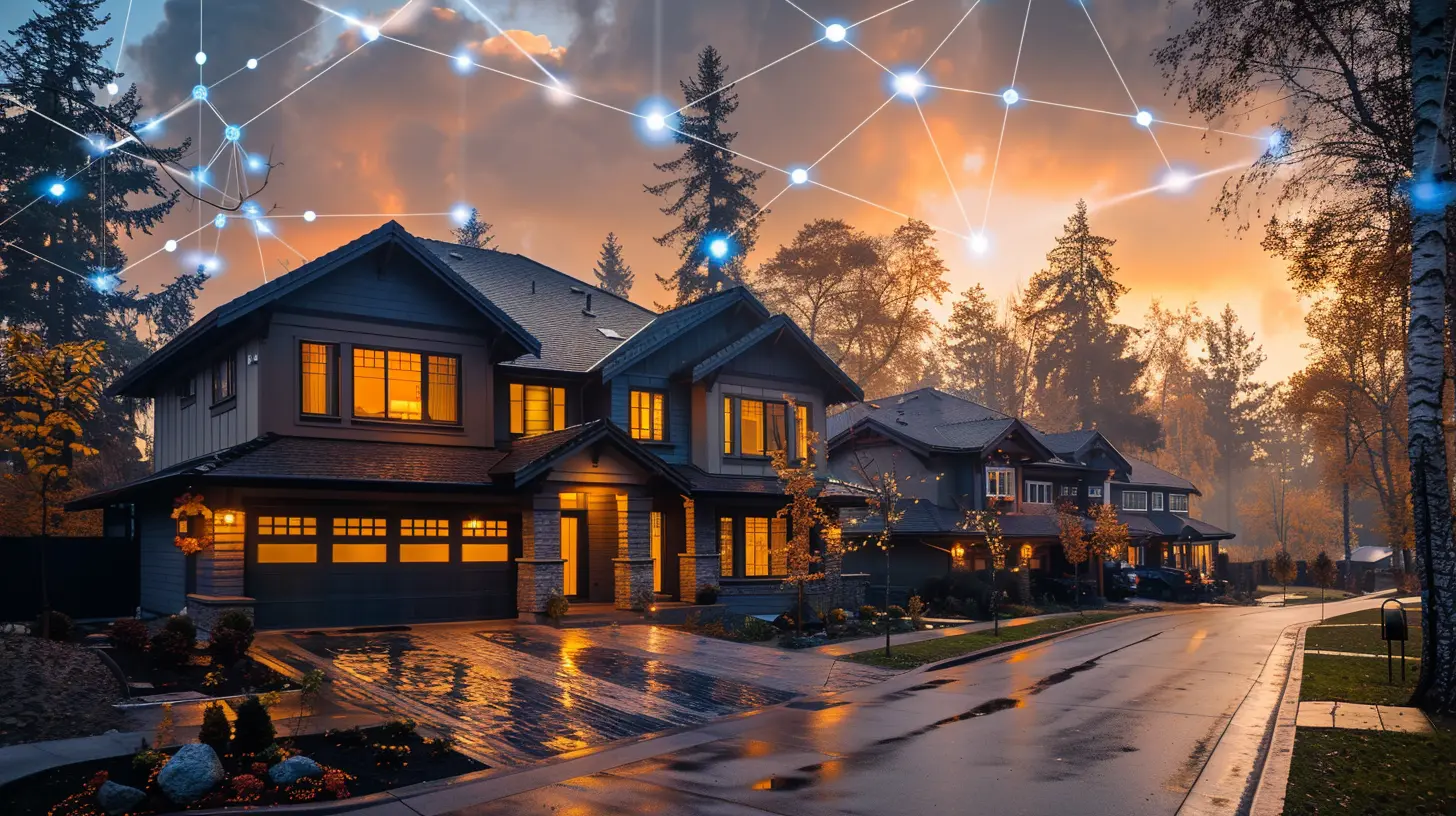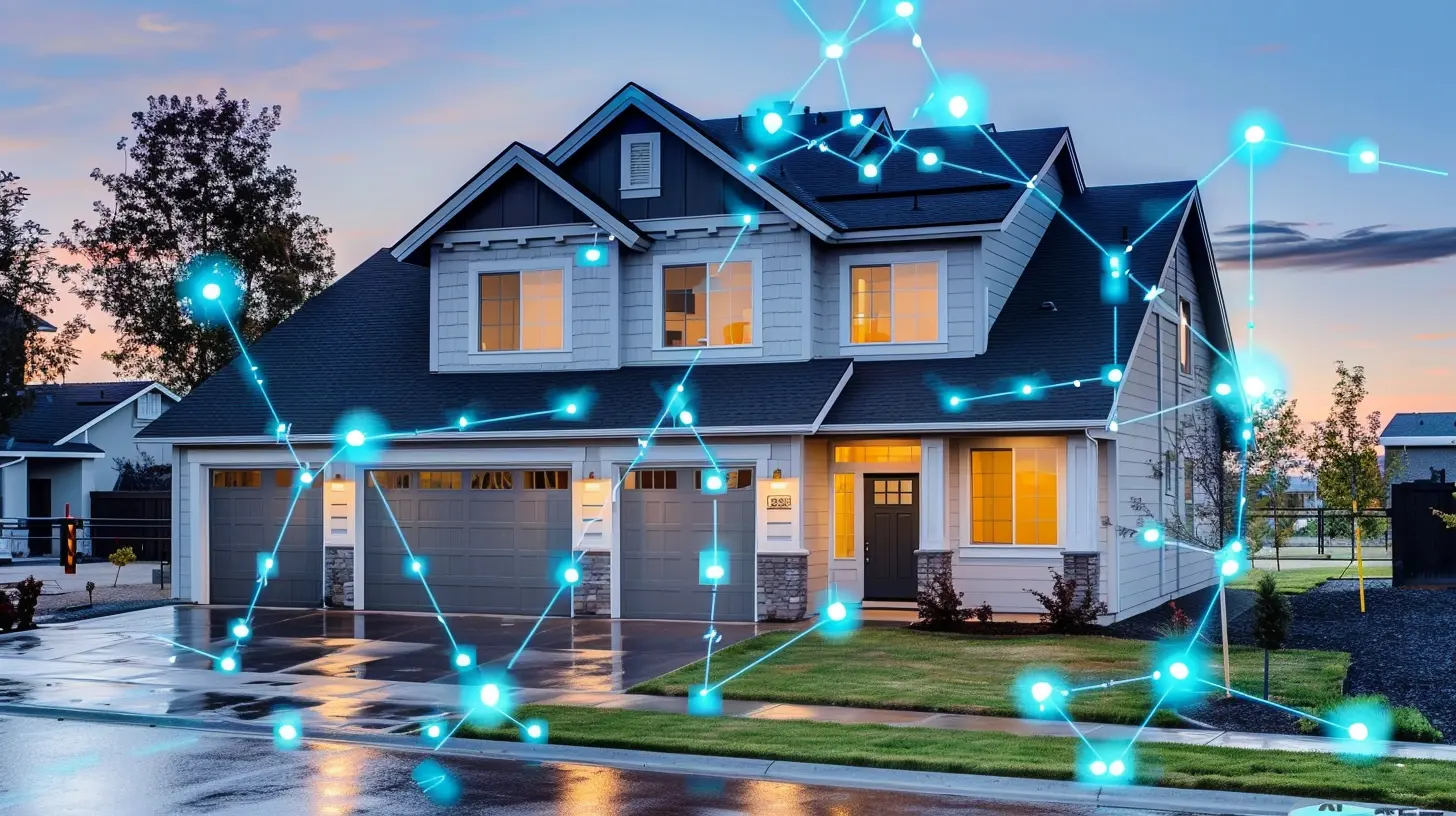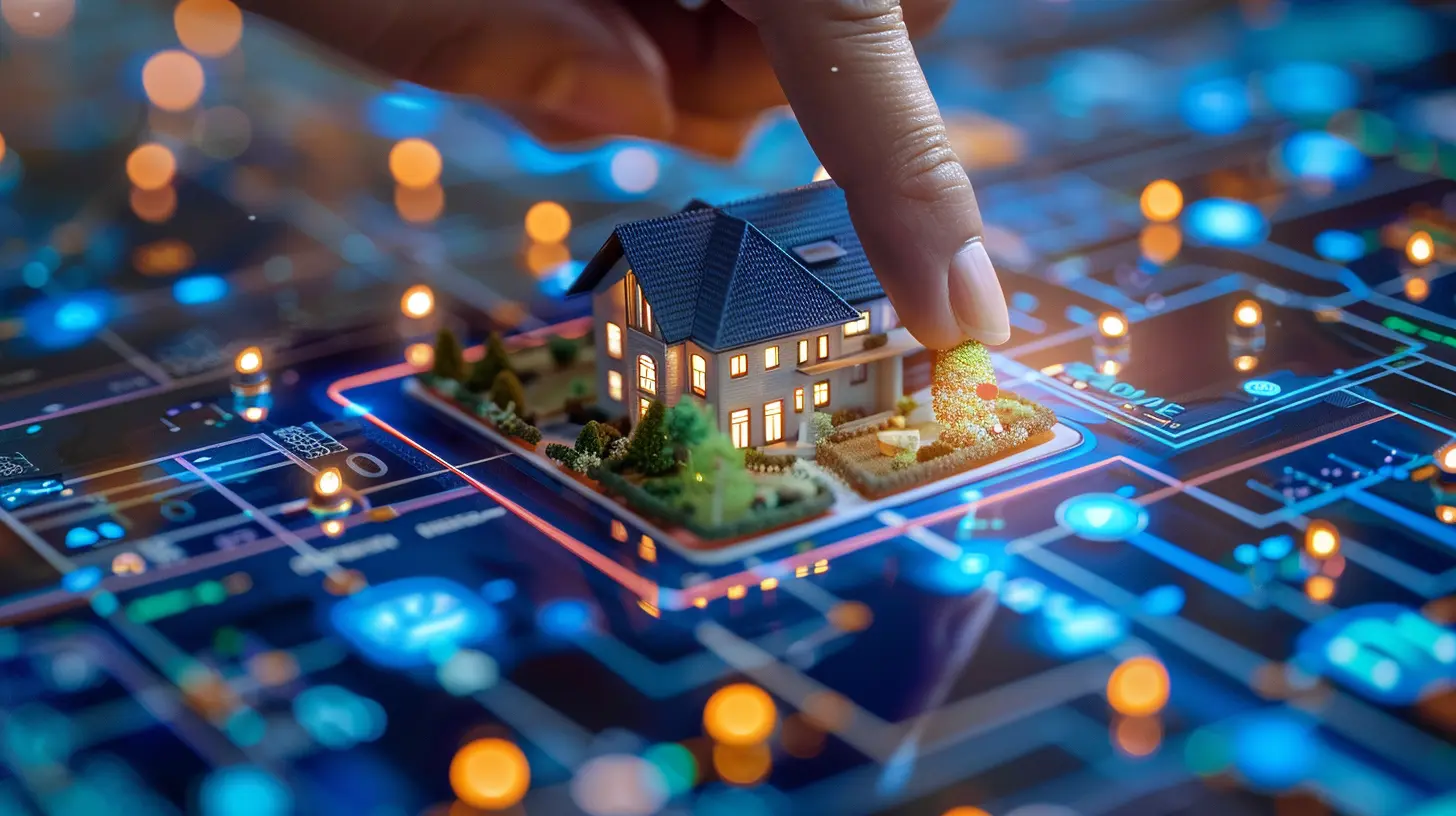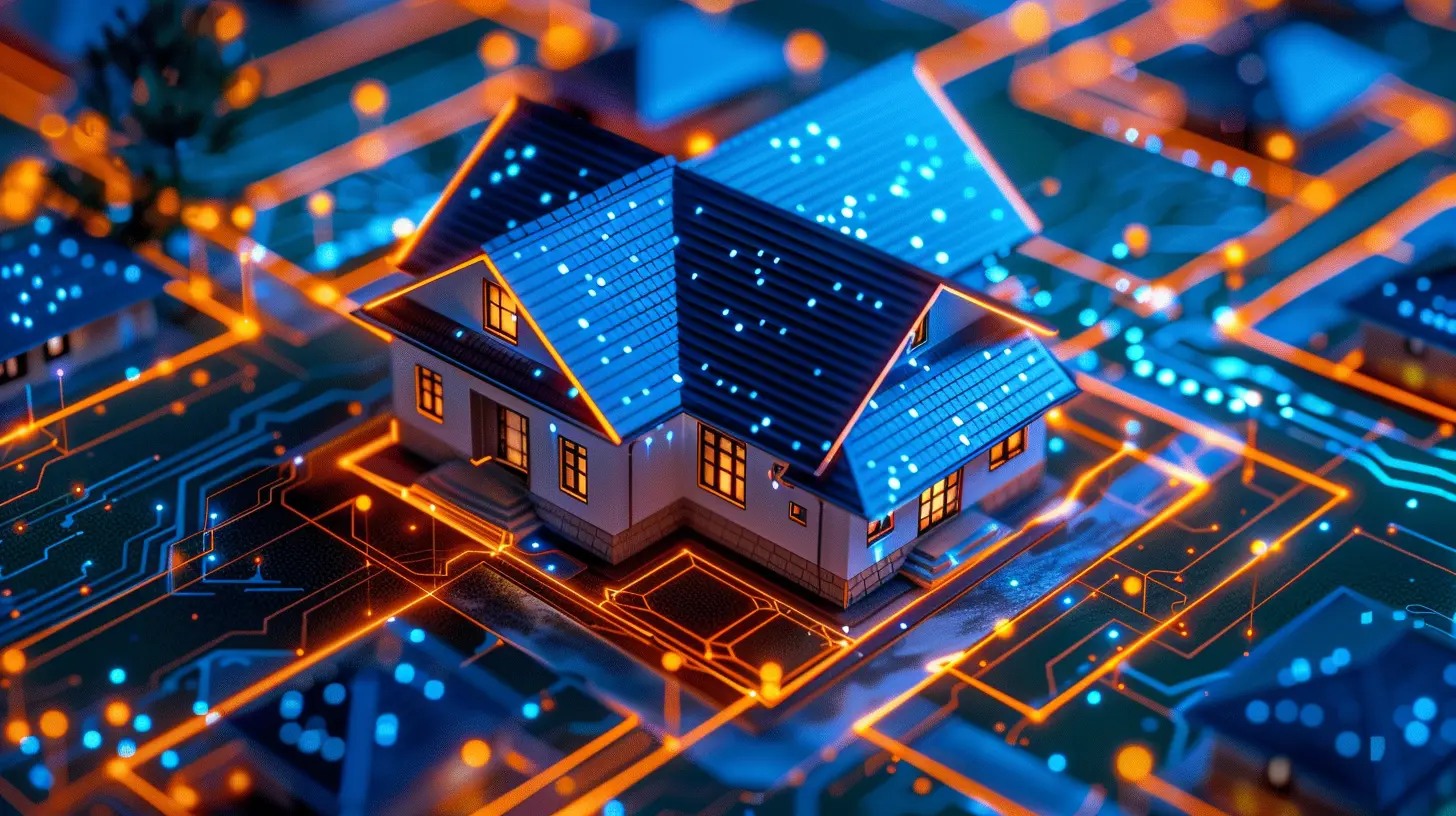How Smart Homes Are Becoming a Selling Point in the Market
19 August 2025
The real estate industry is evolving, and one of the biggest game-changers today is smart home technology. Buyers are no longer just looking for spacious kitchens or big backyards; they want homes that are convenient, efficient, and packed with technology that makes life easier.
But why exactly are smart homes becoming such a massive selling point? Is it just a passing trend, or is this shift here to stay? Let's dive in and see how smart technology is shaping the housing market. 
What Is a Smart Home?
Before we get into why smart homes are so popular, let's break down what they actually are. A smart home is a house equipped with devices that can be controlled remotely via a smartphone, tablet, or voice command. These devices include:- Smart thermostats – Automatically adjust the temperature for comfort and energy savings.
- Smart lighting – Control brightness and colors from your phone or with voice commands.
- Smart security systems – Cameras, doorbell cameras, and smart locks for enhanced security.
- Smart appliances – Refrigerators, ovens, and even coffee makers that connect to Wi-Fi.
- Home automation hubs – Devices like Amazon Alexa or Google Assistant that integrate everything.
Essentially, a smart home is designed to make life easier, safer, and more energy-efficient. 
Why Are Smart Homes Gaining Popularity?
While smart homes were once considered a luxury, they are quickly becoming the norm. Here’s why more buyers are prioritizing them:1. Convenience Is King
We live in an era where people value convenience more than ever. The ability to lock your doors, adjust the thermostat, and turn off the lights—all from your phone—makes life smoother. With voice assistants like Alexa and Google Home, you don’t even need to lift a finger.Imagine lying in bed and realizing you forgot to turn off the kitchen lights. Instead of getting up, you just say, "Hey Google, turn off the kitchen lights," and boom—done. Now, who wouldn't want that?
2. Energy Efficiency Saves Money
Smart homes aren’t just about fancy gadgets—they help save money too. Smart thermostats like Nest and Ecobee learn your schedule and adjust temperatures accordingly. This prevents unnecessary power consumption, which translates to lower electricity bills.LED smart bulbs use up to 75% less energy than traditional bulbs. Plus, you can set them on a schedule, so they turn off when no one is home. Over time, these small savings add up, making the home more cost-effective.
3. Security and Peace of Mind
A major driving force behind smart homes is security. With smart locks, you can lock and unlock doors remotely. Forgot to lock the door on your way to work? No problem—just do it from your phone.Doorbell cameras like Ring allow homeowners to see who’s at the door—even when they're not home. Motion sensors and security cameras provide real-time alerts, allowing homeowners to monitor their property from anywhere. This level of security is a huge selling point for buyers looking for safe neighborhoods.
4. Increased Home Value
Smart home features don’t just make a home more appealing—they increase its value. Studies show that homes with smart features sell faster and for a higher price than those without.Buyers today are more tech-savvy than ever, and they’re willing to pay extra for the convenience and efficiency that smart homes offer. Upgrading a home with smart features can make it stand out in a crowded market, giving sellers an edge.
5. Remote Access and Control
With remote access, homeowners can control almost every aspect of their home from anywhere in the world. Whether you need to check security footage while on vacation or adjust the thermostat before you get home, smart technology puts control at your fingertips.For people who travel frequently or have second homes, this level of access offers unmatched convenience and peace of mind. 
Smart Homes and the Future of Real Estate
As technology continues to advance, smart homes are shaping the future of real estate. Here’s how:1. Builders Are Integrating Smart Tech from the Start
A decade ago, smart home features were considered add-ons. Now, many builders are incorporating them from the get-go. New constructions often come with built-in smart thermostats, lighting, and security systems, making them more attractive to modern buyers.2. Real Estate Agents Are Highlighting Smart Features
In today’s housing market, mentioning smart features in a listing can boost interest. Terms like "smart thermostat," "Wi-Fi-enabled security system," and "voice-controlled lighting" attract potential buyers looking for tech-savvy homes.Real estate agents are also educating buyers and sellers on how smart technology improves home value, further pushing the demand.
3. Smart Home Staging Is on the Rise
Just like traditional staging helps buyers visualize a home’s potential, smart home staging does the same—but with tech. Demonstrating how devices work during open houses can make a huge impression.Imagine a buyer walking in and seeing the lights adjust based on occupancy, music playing with a simple voice command, and temperature settings that shift automatically. It’s an experience that sticks and can make a home more desirable. 
Challenges of Selling Smart Homes
While smart homes are a huge selling point, they also come with some challenges:1. Privacy Concerns
Some buyers worry about the security risks of smart devices. Hacking concerns, data privacy, and unauthorized access are real issues. Sellers must reassure buyers that devices have strong security settings and can be reset before the new owners move in.2. Learning Curve for Some Buyers
Not everyone is tech-savvy. Some older buyers or those unfamiliar with smart technology may feel overwhelmed by too many gadgets. Simplifying the setup and offering basic explanations can help ease these concerns.3. Compatibility Issues
Smart home devices come from different manufacturers, and not all of them work seamlessly together. If a home has multiple platforms (Amazon Alexa, Google Home, Apple HomeKit), ensuring they are compatible can be a challenge.Despite these challenges, the benefits of smart homes far outweigh the drawbacks.
Are Smart Homes Here to Stay?
The answer is a resounding yes.The demand for smart homes continues to grow as technology becomes more integrated into daily life. Buyers are actively seeking homes with smart features, and sellers who invest in smart upgrades see higher returns.
While smart technology will continue to evolve, one thing is clear—it's not just a passing trend. It’s the future of real estate.
So, if you’re planning to sell your home or invest in real estate, adding smart features might be one of the best decisions you can make.
Final Thoughts
Smart homes are no longer just a luxury; they are becoming a necessity. Buyers want homes that offer convenience, security, and energy efficiency—all of which smart technology provides.For sellers, investing in smart home upgrades can make a property more appealing and competitive in today's market. And for buyers, purchasing a smart home means stepping into the future of modern living.
As technology advances, one thing is certain—smart homes are here to stay. And in the real estate world, they’re a major selling point that can’t be ignored.
all images in this post were generated using AI tools
Category:
Housing MarketAuthor:

Elsa McLaurin
Discussion
rate this article
1 comments
Miranda McFarland
Smart homes enhance convenience and efficiency, making them attractive to buyers. However, potential challenges include cost and compatibility with existing systems.
September 8, 2025 at 12:04 PM

Elsa McLaurin
Absolutely, smart homes offer significant benefits in convenience and efficiency, but it’s essential to consider potential barriers like cost and compatibility with current systems. Balancing these factors can help maximize their appeal to buyers.


